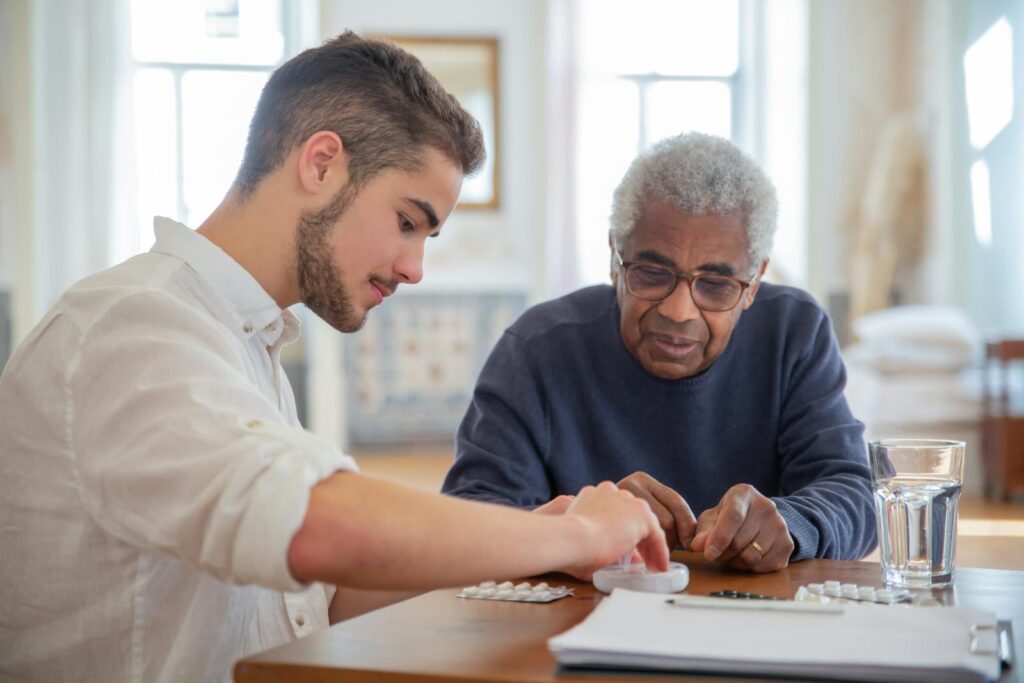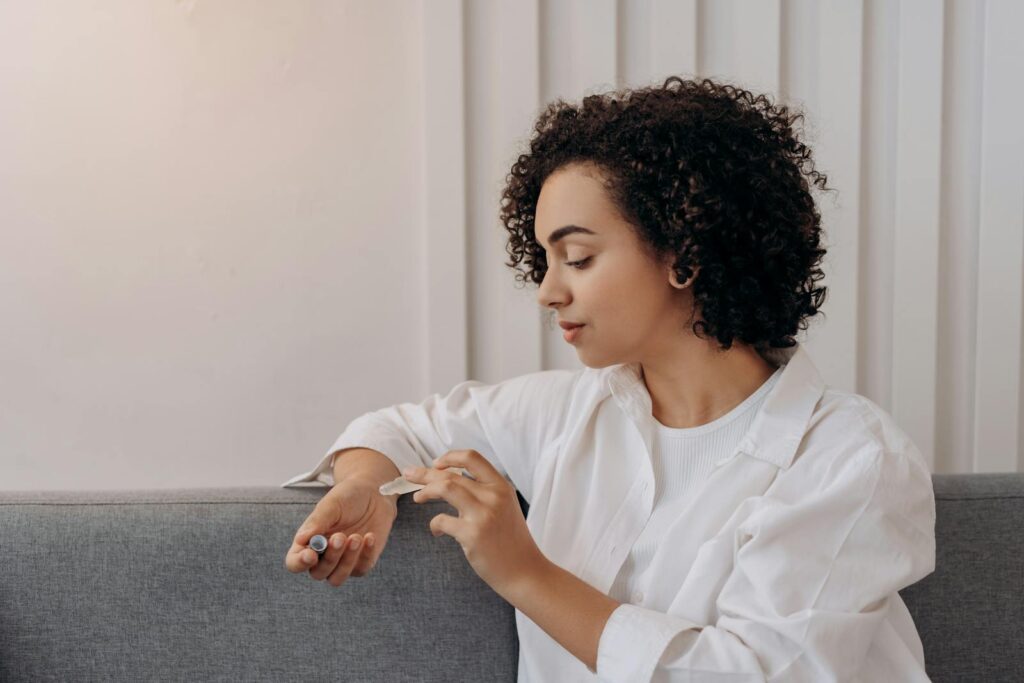
People don’t need a full conversation to start forming an opinion about you. In fact, within just a few seconds, they’ve already picked up on a handful of small details that tell them more than you might think. Some of these things you can control, while others happen naturally without you even realizing it. Here are fifteen of the most common ones.
The way you enter a room.

People feel your presence the moment you walk in. If you step in with your head up, looking around with ease and comfort, you look approachable. On the flip side, moving too quickly or hesitating at the door can give the opposite impression. The pace of your steps, your posture, and even how you look at every single person in the room all play into how you’re received.
Your natural expression.

Before you say even a single word, your resting face sets the tone. A soft smile can make you seem open and friendly, while a tight or tense look can make people hesitate to approach. It’s not about forcing a grin—it’s about allowing your face to reflect ease. People notice all small movements like raised brows or relaxed eyes almost instantly.
How your eyes connect with others.

Eye contact speaks volumes in the first few moments. Meeting someone’s gaze shows that you’re engaged and present and avoiding it can come across as shy or distracted. Holding it for too long can feel intense, but just enough makes people feel acknowledged. The rhythm of how you look at someone tells them if you’re genuinely interested in the interaction.
The clothes you choose to wear.

Your outfit can quietly communicate more than you realize. A neat and coordinated look can suggest that you pay attention to details, while a more casual style signals ease and comfort. Even the colors you wear influence perception. Bright shades can seem very cheerful, on the flip side, muted tones can come across as understated. People notice patterns, textures, and how comfortable you look in them.
The sound of your voice.

People pick up on more than your words as soon as you speak. A steady and clear voice suggests confidence, while a rushed or shaky tone might reveal nerves. Volume matters too. Speaking too softly can make you seem unsure, while being too loud can feel overpowering. The natural warmth or sharpness in your voice shapes how others respond to you.
The energy you bring

You don’t have to be the most outgoing person for people to feel your presence. Your energy comes through in the way you move, gesture, and respond. Walking in with a light, positive vibe can make others feel at ease. Coming in too forcefully might overwhelm the moment, while low, unengaged energy can leave people unsure how to connect.
How you treat the people nearby.

People often notice your behavior toward others before they notice your words. Holding the door for someone, greeting a receptionist warmly, or saying a quick thank you creates a positive impression. On the other hand, ignoring or dismissing people can leave a mark too. Small acts of respect and kindness tend to stand out much faster than you think.
The scent you carry with you.

A person’s scent is one of those details people register without consciously thinking about it. A light fragrance, clean laundry, or the smell of fresh soap can be inviting. Overpowering perfumes or noticeable odors can distract from the moment. Because smell is linked to memory, this first impression often sticks long after the initial interaction ends.
Your first physical greeting.

A handshake, a gentle touch on the arm, or even the way you wave hello sets the tone for how people feel around you. A steady handshake can show confidence, while a rushed or weak one may feel unenthusiastic. If physical contact isn’t part of the moment, even a simple nod or warm verbal greeting can create that same early connection.
The way you listen.

People can tell whether you’re paying attention in seconds. Leaning in slightly, nodding at the right moments, and keeping your eyes on the speaker all show genuine interest. Glancing at your phone or scanning the room can make someone feel they don’t have your full attention. Listening well is one of the quickest ways to earn trust and respect.
How relaxed you seem.

Your body language tells people if you’re comfortable. Relaxed shoulders and easy gestures can make you look approachable. Constant fidgeting, stiff posture, or looking around too much can show that you’re feeling discomfort. People tend to mirror the mood they sense, so showing ease early on encourages them to settle into the interaction with you.
Your grooming habits.

Simple grooming details can speak louder than you realize. Neat hair, clean hands, and well-maintained clothes can make you seem very attentive and self-respecting. Wrinkled clothes or signs of neglect might lead people to assume you overlook details. This isn’t about perfection—it’s about showing a basic level of care that people pick up on almost immediately.
The moments you laugh or smile.

A genuine laugh or a quick smile can make you seem approachable right away. People often notice if you find joy in small moments or if you remain overly serious. Sharing a light laugh can break tension, create warmth, and make conversations flow more easily. The timing of when you smile often says as much as the smile itself.
How you stand in relation to others.

Your physical distance from people sends signals before you speak. Standing too close can feel pushy, while standing too far will make you look detached. Shifting your body slightly toward someone or leaning in during conversation shows engagement. People naturally respond to how much space you take up, so finding a comfortable balance helps you appear both confident and considerate.
The confidence you project.

Confidence shows in many small ways, from how you hold your head to the steadiness of your voice. Speaking with clarity, moving with purpose, and meeting people’s eyes are all examples of a confident person. Overconfidence can feel off-putting, while too much hesitation might read as insecurity. People sense whether you’re comfortable in your own skin long before they know your story.

